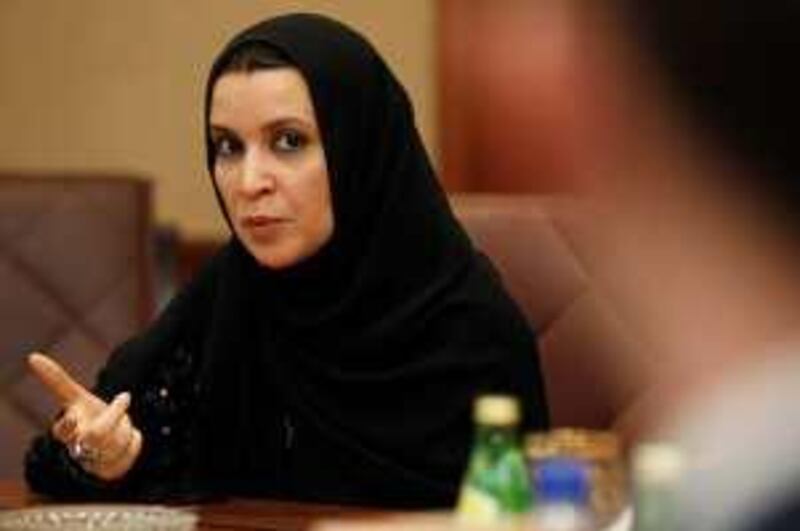DUBAI // Health experts have conceded that they have no clear idea how many children die in the UAE as a result of abuse, and criticised the country's outdated and unprofessional approach to collecting data on the problem. Although it is acknowledged that injuries are the top cause of death of children, official figures do not provide a clear accounting of victims of domestic violence or maltreatment.
According to the Ministry of Health, 746 children aged up to 14 years old were fatally injured between 2000 and 2006 - an average of 107 a year. Information is collected in different forms by the various federal and emirate-level agencies, with little co-ordination. This makes it difficult to assess the full extent of the problem or tackle its causes. Dr Amal al Qubaisi, a member of the Federal National Council from Abu Dhabi, spoke at the Arab Children's Health Congress yesterday about the lack of research.
"You need extensive research so you know what you are looking for," she said. "We, as legislators, really need to be informed properly. "The data is confusing sometimes, if it exists at all. Statistics are outdated and not professionally worked on." Collaboration was crucial, she added, and any research should include all forms of injuries, including those intentionally inflicted on children. "We include traffic injuries but when it comes to violence within houses, we keep quiet somehow and don't pinpoint it," she said.
"We need a realistic strategy, not an ideal one, that's reflected by the necessary budget to study the state of our children and upgrade the legislation if necessary." Despite the money spent on health promotion, the UAE still has higher-than-average rates of injury-related deaths. Although detailed data does not exist, experts estimate it has up to three times as many as other developed countries.
Dr Tawfiq Khoja, director general of the GCC Executive Board of the Health Minister's Council, said it was "well known" that child abuse existed in the Arab region, but it was rarely spoken about or addressed. "Child abuse is not an easy subject and it should be tackled from every direction," he said, adding that he would like to set up an Arab initiative to "protect children from abuse". Dr Etienne Krug, of the department of injuries and violence prevention at the World Health Organisation, said that while the number of injury-related deaths is declining globally, it continues to rise in many Middle Eastern countries.
"The downward trend we have seen in some other high-income countries has not yet materialised in this part of the world," he said. He called for Arab countries to formulate a regional strategy on injury prevention, but said it would not be possible until accurate data was available. "All of the countries here lack data, both on a national level and on a regional level," Dr Khoja said. "We need federal and regional approaches to understand how bad the problem really is."
Dr Khoja added that without accurate statistics, governments would never "accept and acknowledge" the scale of the problem. "The investment in research in the Arab region is the lowest in the world," he said on the sidelines of the congress. "If we talk about single countries, it is a negligible amount. This must change." As well as road accidents, common injuries to children include drownings, burns and choking.
Figures vary across the Emirates. The most recent national statistics were released by the Ministry of Health in 2007. "We need to create an Arab initiative to stop child abuse and an Arab advisory research committee," Dr Khoja said. "We should be working together on this. We cannot do our decision-making without it. I am a decision-maker and I am looking for data. It is not there." He said he would raise the subject at the next meeting of the GCC health ministers.
The congress was organised by the Dubai Health Authority and held under the patronage of Princess Haya bint Al Hussein, a wife of Sheikh Mohammed bin Rashid, Prime Minister of the UAE and Ruler of Dubai. It concludes tomorrow. @Email:munderwood@thenational.ae






